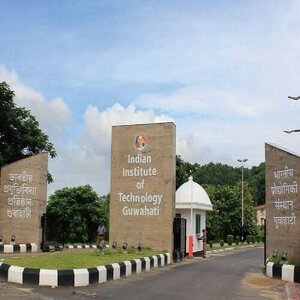IIT Guwahati teams up with University of Western Sydney; launches Australia-India Water Centre

Australia-India Water Centre was inaugurated virtually through a Webinar, in view of the pandemic situation, on November 6, 2020 (Friday).
Hon’ble Minister Mr. Dan Tehan, Minister for Education - Government of Australia, Hon’ble Shri Gajendra Singh Shekhawat, Jal Shakti - Government of India, Hon’ble Shri B. C. Patil, Minister of Agriculture - Government of Karnataka, His Excellency Shri A. Gitesh Sarma, Indian High Commissioner to Australia, His Excellency Barry O’Farrell AO, Australian High Commissioner to India, Prof T. G. Sitharam, Director – IIT Guwahati, and Directors, Vice Chancellors, Deans of all the partner institutions and many other dignitaries were virtually present on this occasion. The Water Centre is led by University of Western Sydney from Australia and IIT Guwahati from India along with 21 other partners from India and Australia.
The water issues and challenges of India and Australia share many common elements, including natural extremes of floods and droughts, increasing competition for water between urban, peri-urban and rural sectors and increased threats to water security from climate change. There are also pressures due to the over-exploitation and water quality degradation of surface and groundwater resources. The recent joint declaration at the virtual summit of the Prime Ministers of Australia and India, in June 2020 stated that “Water security is a critical challenge for both countries, and it was jointly decided to deepen policy and technical cooperation on mutually agreed activities to improve water management and sustainable economic development.” With this in view, a number of universities, research organisations and business partners from Australia and India have committed to establish the Australia India Water Centre (AIWC).
The MoU signed during this occasion attempts to establish an understanding of cooperation for the Australia India Water Centre (AIWC) between the parties. The Australia India Water Centre will enable Australian and Indian partners to explore opportunities and create synergy for a longer-term collaboration in research and education between the two countries. In particular, the parties anticipate this will include collaboration in water research, a joint Master’s level program in water futures, student and staff exchanges, workshops and conferences and provide short-term training in water sector to government agencies and other participants.
The proposed activities within the MoU (signed for a duration of five years) are to develop longer-term collaboration in water research, capacity building and knowledge and technology transfer, particularly focusing on water and food security, safe drinking water supplies, river health, water-energy-food nexus, water for liveable cities and other related aspects of mutual benefits to Australia and India through:
- The development of tools and techniques to tackle future water and food security challenges including improved management of groundwater, springs, storm water and coastal reservoirs
- Establishment of a joint Master’s level program in water resources management
- Capacity building/training programs for government department staff, policy makers, NGOs and industry personnel
- Promotion of transdisciplinary research and training approach in research and training/educational program
- Promotion of water expertise of the Centre partners which expands engagement and networking internationally
Speaking at the webinar organized on this occasion, Shri Gajendra Singh Shekhawat, Union Minister of Jal Shakti, Government of India, said, “I am delighted to inaugurate the Australia India Water Center (AIWC) to promote water related research, teaching and training between the two countries in the presence of officials and experts from the water sector of India and Australia. My wishes for making this collaboration towards water sustainability successful!”
Highlighting the benefits of this partnership, Prof. T. G. Sitharam, Director, IIT Guwahati, said, “Water is likely to play a key economic and strategic role in the future. This Centre will focus on collaboration in transdisciplinary research, capacity building and knowledge and technology transfer, particularly on aspects of water and food security, safe drinking water supplies, river health, water-energy-food nexus, water for liveable cities and other related facets of mutual benefits to Australia and India.”

